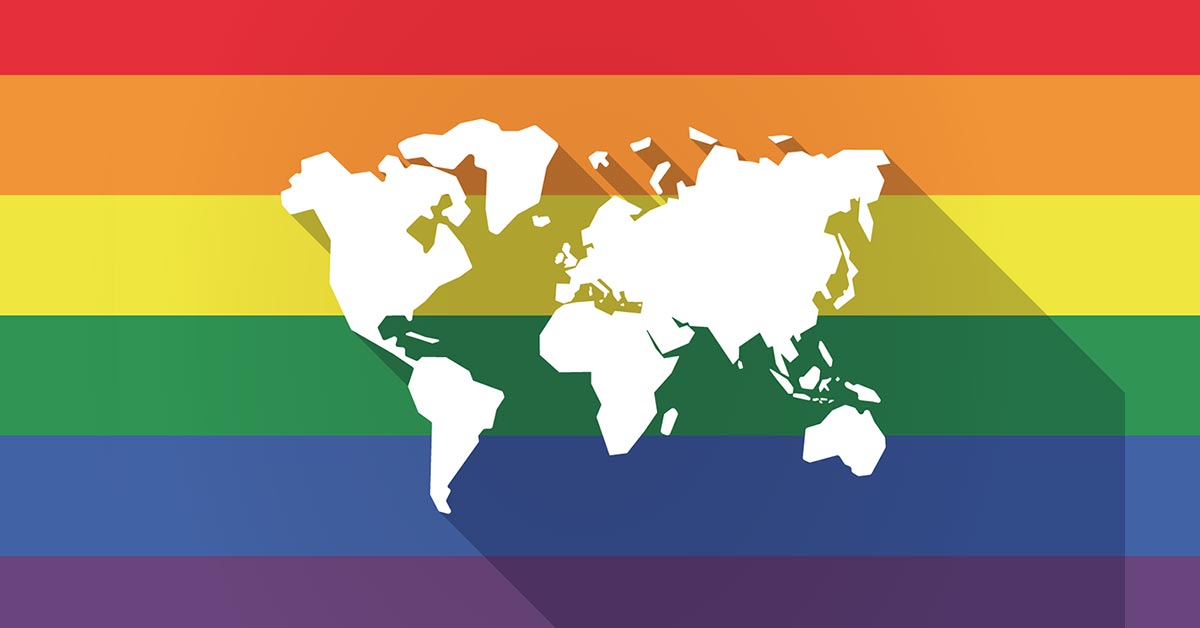LGBT people still arrested and prosecuted worldwide

Arrests and prosecutions for consensual same-sex sexual acts, or for diverse gender expressions, continued unabated across the world in 2021.
For its new report Our Identities Under Arrest report, ILGA World reviewed hundreds of cases over the last two decades in which law enforcements subjected LGBT and gender-diverse persons to fines, arbitrary arrests, prosecutions, corporal punishments, imprisonments and more – up to (possibly) the death penalty.
The organisation noted that the actual numbers, however, may be much higher as many cases may have never been formally registered, and oftentimes formal records are inaccessible or non-existent.
In April 2021, for example, Uzbekistan’s Interior Ministry reportedly indicated that 49 persons remained incarcerated for “sodomy” under Article 120 of the Criminal Code, with nine of those being arrested in 2020 alone. ILGA World, however, was only able to find details of one such incident in 2020.
“To date, around one third of United Nations member States continue to criminalise consensual same-sex sexual acts between adults”, says Kellyn Botha, research consultant at ILGA World and author of the Our Identities Under Arrest report.
“Governments often dismiss these provisions as ‘dormant regulations’, but laws never really sleep. This report provides plenty of evidence of how criminalising provisions have targeted our communities worldwide, at times coming back to life after years spent as a mere threatening presence on the books. The unpredictable nature of their enforcement makes LGBT and gender-diverse people live perpetually under threat, excluding them from an equal participation in society”.
Africa remains the region with more criminalising jurisdictions than any other: 32 of 54 African Member States have legal frameworks explicitly criminalising consensual same-sex sexual acts and diverse gender expressions.
In numerous instances, non-conforming and diverse gender expressions appear to be a central element triggering arrests – even when legislation doesn’t target them explicitly.
“In societies where non-normative behaviour is largely read as evidence of non-heterosexuality, the way a person looks, dresses and talks can often be seen as indicative of probable ‘criminal activity’, and be enough to warrant an arrest”, says Lucas Ramón Mendos, research coordinator at ILGA World. “In many jurisdictions, it is far more likely for someone to be targeted for their appearance or mannerisms than for any verifiable illicit activity”.
According to the report, raids, arbitrary searches, online entrapment by security forces, and tip-offs in hostile environments are among the most common ways in which targeting begins.
Under criminalising laws, people of diverse sexual orientations, gender identities and expressions have been arrested even when trying to report a crime they had been victim of themselves. In many instances, there is little to no proof of any illicit activity to support these arrests: reports show how confessions – at times allegedly extracted through torture and beatings – or forced anal examinations have also been used in search of ‘evidence’ of any same-sex activity.
“Laws criminalising consensual same-sex sexual acts or diverse gender expressions, as well as other less explicit provisions, represent a constant threat”, points out Julia Ehrt, Executive Director at ILGA World. “This is true not only for our communities on the ground, but also for those seeking asylum after having managed to flee hostile environments. Claims that a law is rarely enforced are simply not enough to make a country safe for those who nevertheless are in danger of persecution there.”
Looking beyond the law, ILGA argues that the real human stories of how people are affected by criminalising regulations emerge as a strong call for those in power to stop violence against marginalised communities.
“There is a vital need to continue this research work”, concludes Luz Elena Aranda and Tuisina Ymania Brown, Co-Secretaries General of ILGA World. “We need to cast a light on how criminalising laws affect millions of people, and to give voice to those pained masses who have been silenced by prejudice and by those in power”.
Leave a Reply